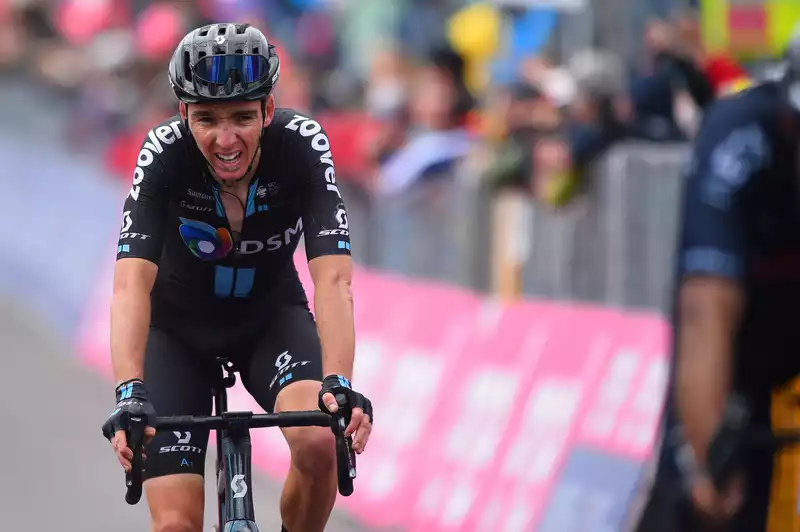Romain Bardet (Team DSM) called for more to be done regarding the banning of substances he feels are in the gray area of sports performance and enhancement.
The French athlete specifically cited corticosteroids and ketones as the two main products that should be banned altogether, and the climber also expressed concern about the number of out-of-competition tests conducted since the 2020 COVID-19 outbreak.
Bardet was asked about anti-doping testing at the Tour de France, where Bahrain Victorious was the subject of intense scrutiny prior to the recent "Rouleur Live" in London.
No anti-doping charges have been filed, but according to reports in France, three members of the team submitted samples containing traces of tizanidine, a powerful muscle relaxant.
The team initially denied using the product, but issued a second statement in which they did not deny using tizanidine, but emphasized that it is not a banned drug.
Cycling has taken steps in the past to ban painkillers and other similar products, with tramadol added to the banned list in 2019. It took several years for action to be taken, and there are countless anecdotes about drug abuse.
Bardet does not want such substances, be they painkillers, muscle relaxants, or ketones, to be used again after such a long period of time.
"As long as the rules are too permissive ...... That's the problem," Bardet told Cycling News. 'We've been talking about ketones for a couple of years now, and MPCC is pushing for them, but other teams are still saying they will use them.' [It's up to the anti-doping authorities to decide if it's banned or not, and the problem is that there's a gray area. The law is too permissive. We talk a lot about these substances, but what we should do is ban them."
[16"It's tough, sure, but it's always a part of cycling. Because we focus a lot on these issues," he said.
"It's good that we focus on these issues and it's good that the media covers these issues. For me, it always takes too long to realize that we need to be strict about certain points. It's the same with tramadol."
Bardet also expressed concern about the number of inspections conducted during out-of-competition periods. He can only speak of personal experience and admits that anti-doping agencies these days have a much more targeted and information-driven approach to testing riders, but that at the peak of the drug testing epidemic, drug testing had dropped to a fraction of the previous level.
"There is work to be done," Bardet said. 'Especially with regard to management. I am speaking from my experience, and I think it has gone down dramatically since Covid"
.
"If it's the same for everyone, the sport needs to take more measures. There will always be suspicion in cycling, but there is more that can be done to make it a cleaner sport, including more controls and more testing."
[30The French cited in particular the example of riders and teams often using Tenerife's Teide as a training base. While the tests are not non-existent, their quality is notoriously poor, and riders have complained in the past about the lack of control that takes place here.
"Outside of competitions, I may have taken it three or four times, five times at most, for my passport. I have spent three or four weeks in Teide without inspection, and 25 other athletes have stayed there without inspection.
"I know it costs a lot of money, but it is necessary for cycling. I am confident that the people running anti-doping are still sharp and really monitoring and targeting things. Overall, I felt the level of testing had dropped a bit."
.

Comments